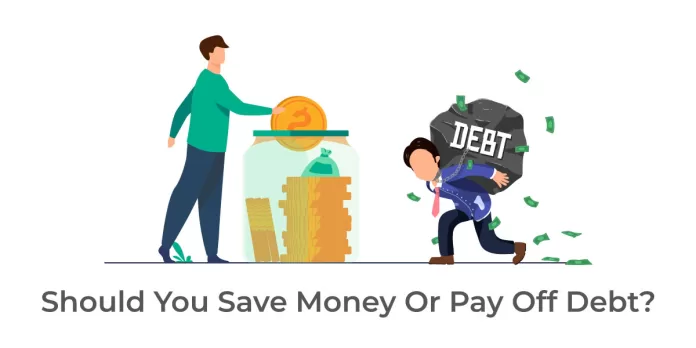In the perpetual juggle of personal finance, the perennial question remains: Should you prioritize saving money or paying off debt? It’s a dilemma many individuals face, and the answer isn’t always straightforward. Striking the right balance between saving and debt repayment depends on various factors, including your financial goals, current financial situation, and the types of debt you hold.
Understanding Your Financial Landscape
Before diving into the decision-making process, it’s crucial to assess your current financial standing. List out all your debts, including credit cards, loans, and other liabilities. Take note of their interest rates, as high-interest debts may require more immediate attention.
Simultaneously, evaluate your savings. If you have little to no emergency funds, allocating resources towards building one becomes a priority. An emergency fund serves as a financial safety net, providing peace of mind in unforeseen circumstances.
High-Interest Debt vs. Low-Interest Debt
Not all debts are created equal. High-interest debts, such as credit card balances, typically accrue interest at a much faster rate than low-interest debts like student loans or mortgages. Prioritise paying off high-interest debts first, as the interest can accumulate quickly and hinder your overall financial health.
Conversely, low-interest debts may not be as urgent to pay off, and it might make more sense to allocate some funds towards savings while simultaneously servicing these debts.
The Importance of Emergency Savings
Building an emergency fund is a foundational step in achieving financial stability. This fund, ideally covering three to six months’ worth of living expenses, acts as a buffer against unexpected events like medical emergencies, car repairs, or sudden unemployment.
While aggressively paying off debt is commendable, having an emergency fund in place can prevent you from resorting to more debt in times of need. Therefore, consider establishing or bolstering your emergency fund even as you work towards debt reduction.
Long-Term Goals
Consider your long-term financial goals when deciding between saving and debt repayment. If you have high-interest debts, focusing on paying them off quickly can save you money in the long run. On the other hand, saving for long-term goals like homeownership, retirement, or education is equally vital.
Balancing both saving and debt repayment allows you to make progress on multiple fronts, ensuring a holistic approach to financial wellness.
Seek Professional Advice
If you find yourself torn between saving and paying off debt, seeking advice from financial professionals can provide valuable insights tailored to your specific situation. Financial advisors can help you create a personalized plan that aligns with your goals and priorities.
Conclusion
The decision to save money or pay off debt is not an either-or proposition; it requires a thoughtful and balanced approach. Prioritize high-interest debts, build an emergency fund, and strategically allocate resources to both saving and debt repayment. By understanding your unique financial landscape and goals, you can strike a balance that sets you on the path to long-term financial success.
Disclaimer: This blog has been written exclusively for educational purposes. The securities mentioned are only examples and not recommendations. It is based on several secondary sources on the internet and is subject to changes. Please consult an expert before making related decisions.


